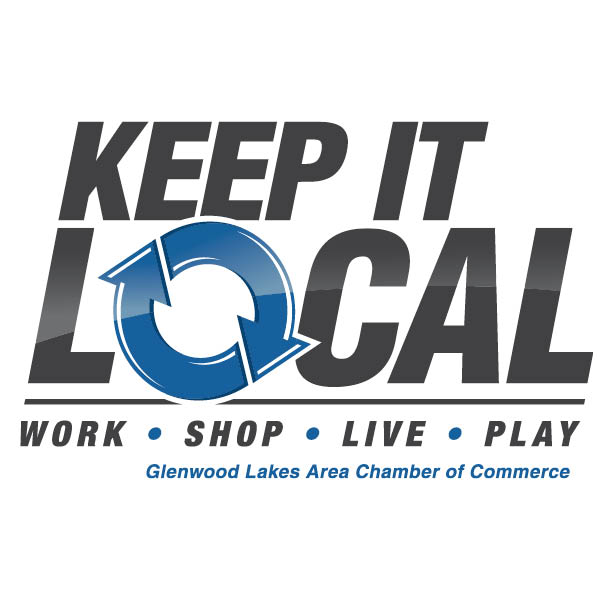Who’s ringing the door bell?
Published on October 30, 2023 at 11:50am CDT
From Where I Sit
By Pat Spilseth, Columnist
Last week we visited the Watkins Museum in Winona and were amazed at all the varied products they developed for sale. That visit brought to mind several other salespeople who would go door to door in our little town of Glenwood in the Fifties selling various products. Remember encyclopedia and vacuum sales, Avon and Mary Kay beauty items, even hairbrushes and knife, meat and dairy products?
Today, do you feel a bit anxious when your doorbell rings, and you can’t place the person standing at your front door? Do you wonder…could she be a Jehovah Witness passing out religious literature, a kid selling magazines or candy for a school fundraiser, or maybe this is the deranged person you read about in the newspaper? Who knows these days?
Those friendly door-to-door salespeople of past years have almost been eliminated. Some communities in the U.S. have actually attempted to ban all door-to-door sales by passing a Green River Ordinance; however, the Supreme Court did rule the ordinance unconstitutional.
I remember Mom welcoming the Fuller Brush man, the Watkins man (he sold the best vanilla) and kids selling seeds, wrapping paper and candy. She ordered from her neighbor lady selling Avon beauty products and wrote a small order for Tupperware at neighborhood parties. Many housewives in the Fifties were stay-at-home moms cleaning house, cooking, baking and hanging laundry on the clothesline in the backyard.
My husband Dave recalls that his “Mom would hide when she’d see the Watkins man drive into our yard. I’d have to go and say “Mom’s not home today.” The salesmen probably figured out that the young kid wasn’t doing the baking in the kitchen where good smells were coming from.
Though Mom may not want to hear his sales pitch, our Scandinavian “nice” behavior demanded that someone answer the knock on the door. After all, we lived with those door-to-door salespeople in the same close-knit community. Kids went to school with his kids; we attended the same church. It was an “obligation” to buy at least a little something from those folks.
My favorite traveling salesman was my Uncle Arthur, our only “citified” relative. I was in awe when he arrived in his white linen suit and large car filled with tantalizing jewelry boxes and soft velvet display cloths. Later, he added toys to his sales, but when I was small he sold earrings, broaches, necklaces and bracelets to variety and department stores in small towns throughout the Midwest. Mom and I were excited when Mom’s spiffy dressed brother knocked at our door; we couldn’t stop smiling when he called at our house. We knew we’d receive a glitzy present to add to our treasured jewelry cases.
Most folks, but especially housewives, often enjoyed these salespeople. It meant company; time to chat with coffee and cookies. In my community, filled with Scandinavians and Germans, husbands were not known for their lively communication with wives. Dad was the strong, silent type. He took good care of things, but he wasn’t a talker. Out in the country, it must have been even lonelier for women with no neighbor ladies living next door to chat and trade kid stories. Many women didn’t drive cars back in the Fifties, and farms were separated by fertile acres of corn, soybeans and dusty country roads. Most of the visiting came on Sunday after church or Saturday night, when the town was really jumping. Farmers drove to town to do their grocery shopping, and the weekly drawing brought everyone in the area downtown. Who didn’t hope to win money, a turkey or whatever was being given away? It was a freebie!
Door-to-door salespeople tended to be very attentive, gushing praise over the housewife’s lovely home, her coffee and homemade cake. After all, most folks felt an “obligation” to serve something to these hard-working people. Their visits meant folks could sit and rest a bit; it was a time to talk at the kitchen table and drink that weak Lutheran coffee Mom always made in her percolator.
It was tougher to say “No” to a crippled salesperson or a person who showed signs of some physical ailment. Hearts went out to these folks, and pocketbooks seemed to open on their own power. The salespeople were bound to be related to someone we knew. Small town relations were many. We didn’t want to offend anyone.
People feel a responsibility to support their local schools and churches. When kids knock at our back door with pictures of their products for sale, we sign our name and hand over the cash. We can count on Boy Scouts selling Christmas wreaths before Thanksgiving, and Girl Scouts going door to door in their green uniforms to sell cookies. Kids sell books of special offers at restaurants and sporting goods stores to earn support for hockey and other sports teams. Band and choir kids often sell fruit to finance their yearly touring trips.
Cold calls are the toughest kind of sales. If a salesperson has a reference known to the person behind the door, it makes a difference. One can trade on names. It works for Ponzi scheme artists; surely it still works for kids and adults attempting to make a sale. If a friend recommends the product, I’m more likely to buy. At least I’ll give the salesperson time to impress me with his sales spiel. If I know the seller, I’ll probably invite them in for a visit with coffee and a cookie. I am my Mother’s daughter, after all.
I haven’t seen a Fuller Brush man nor a Watkins man in years. But my neighborhood does have vacuum cleaner salesmen, steak and shrimp trucks roaming the neighborhood, knife salespeople, tree trimming, firewood and people selling house cleaning products going door to door. I always recognize the pairs of people coming up my sidewalk from the Jehovah Witnesses. I find it hard to confront them at the door, but I do feel obligated to open my front door and greet them. However, I do not invite them in for coffee and cookies.
* * * * * * * *
To contact Pat, email: pat.spilseth@gmail.com.




